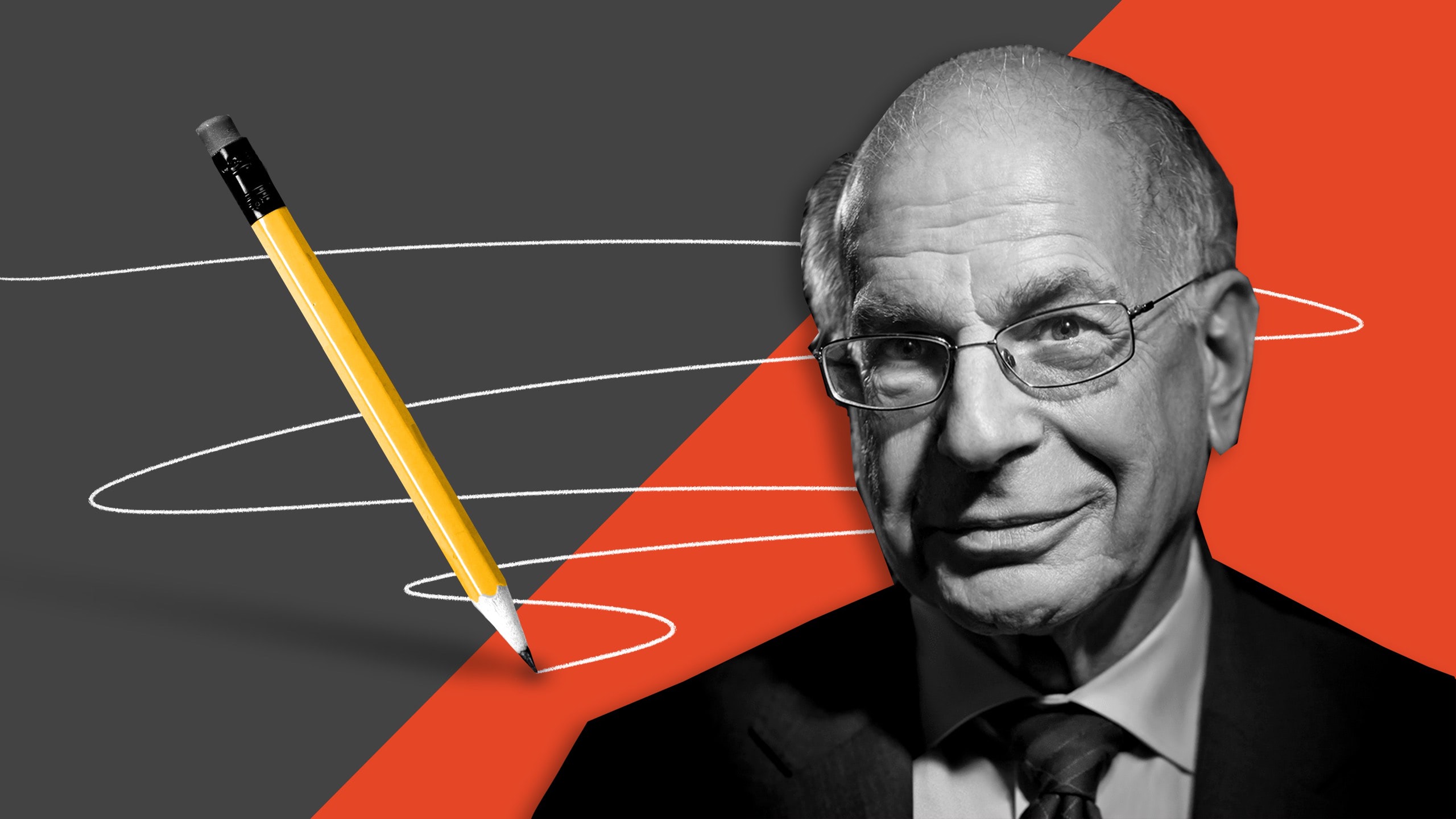Sydney Business Insights and Daniel Kahneman

Professor Daniel Kahneman is sometimes wrong. And that gives him joy.
However, this self-described ‘cheerful pessimist’ does not think life is about the pursuit of happiness.
An hour in the company of the Nobel Laureate is a dazzling journey into the human mind. Professor Kahneman’s research has revealed the processes at work when people make choices and exercise judgement – and how these individual decisions scale-up and affect organisational outcomes.
In a recent conversation with Dr Sandra Peter, Professor Kahneman opens up about when he has changed his mind about his own research, learnings from his latest book Noise and when we should trust – or not – our gut instincts.
Five learnings in one hour with Daniel Kahneman
1. Daniel Kahneman is sometimes wrong. And that makes him happy
“Those moments of even finding that I’m wrong – there is some pleasure in that there is a feeling I’ve learned something. I used to think something and now I think something else and then solving it is even more fun. But even when I solve it, I know that it’s temporary and that I will change my mind again. For me, it’s one of the joys of work. It’s the only time that I feel quite certain that I’ve learned something is when I look at what I used to think, and I say, ‘What an idiot’ – how come I didn’t see this before? Which happens to me a lot.”
2. People don’t desire happiness
“I found that actually, happiness is not what people want. What they really want is life satisfaction. That is, they want to have a good story about their life much more than they want particular experiences of happiness.”
3. Noise is a big problem for organisations
[Noise: unwanted differences in people’s judgements that should be the same.]
“I think that noise is a problem for many organisations, which produce judgements. It’s true for insurance companies. It’s true for banks, it’s true for lenders, it’s true for investors, and each of these organisations has individuals who make particular decisions on its behalf. And if these individuals typically do not agree with each other, then the organisation has a problem. But where it’s most important, is in vital decisions, like how many years will somebody spend in prison, or whatever the proper treatment for a particular disease or particular patient?”
4. ‘Decision hygiene’ can clean up a lot of Noise
We have some recommendations for what we call decision hygiene. There are procedures of how to make good judgements, and how to make better decisions. There’re several steps that can be taken:
- breaking up problems
- making judgements relative
- aggregating judgements
- keeping judgements independent of each other statistically
5. Intuition can be marvellous – and it can be flawed. Recognising the difference is a skill that can be cultivated
“Most of the time, we act on intuition. In terms of fast thinking and slow thinking, most of the time, we’re in fast thinking mode, and most of the time, it works extremely well.”
Individuals can train themselves when to trust, or not, their intuition.
“Individuals should question intuitions under some conditions where they know, or should know, that they’re susceptible to cognitive illusions (or) emotional illusions. Then they should slow down and get advice.”
In complex situations expert intuition is OK under three conditions:
- The world has to be regular (e.g. the stock market is not regular)
- you have to have had a lot of practice, and
- the practice must have involved fairly rapid feedback.
“If those three conditions are satisfied in a particular domain, (expert) intuitions in that domain are likely to develop and to be valid. If they’re not satisfied, any of those is enough for intuition not to not to be expert intuition.”
Professor Kahneman on being a cheerful pessimist: it’s not the worst
“The evidence is very clear, that optimism is largely genetic. It’s a very useful trait to have. I’m personally a pessimist because my mother was, so I’m a cheerful pessimist. And cheerful pessimists are very rarely disappointed. But on the whole, being an optimist is better. Optimists are happier and they get more done.”
Sydney Business Insights is a University of Sydney Business School initiative aiming to provide the business community and public, including our students, alumni and partners with a deeper understanding of major issues and trends around the future of business.
Daniel Kahneman is Professor of Psychology and Public Affairs Emeritus at the Princeton School of Public and International Affairs and was awarded the 2002 Nobel Prize in Economic Sciences.
Share
We believe in open and honest access to knowledge.
We use a Creative Commons Attribution NoDerivatives licence for our articles and podcasts, so you can republish them for free, online or in print.







